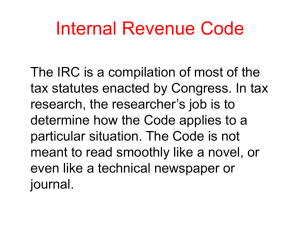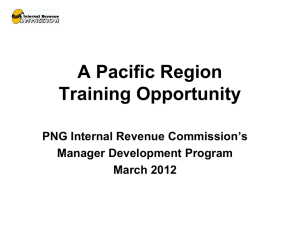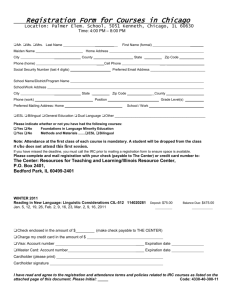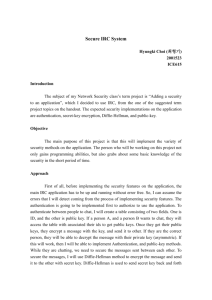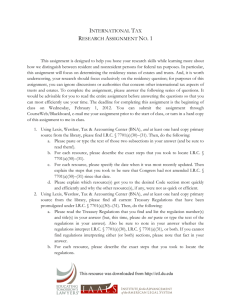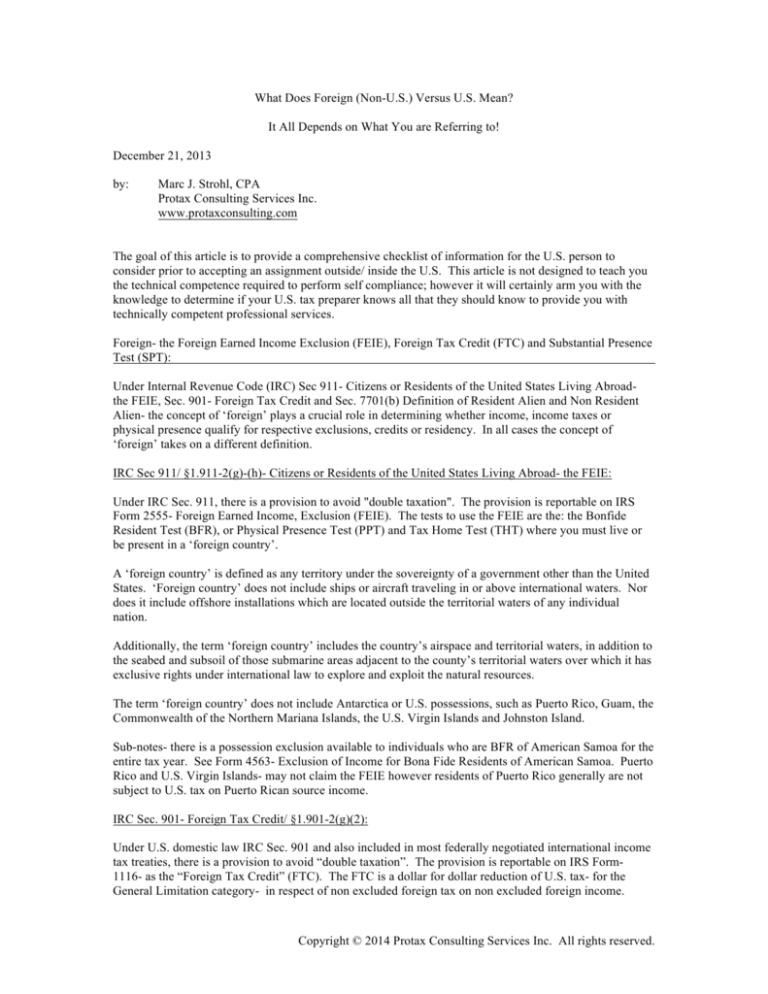
What Does Foreign (Non-U.S.) Versus U.S. Mean?
It All Depends on What You are Referring to!
December 21, 2013
by:
Marc J. Strohl, CPA
Protax Consulting Services Inc.
www.protaxconsulting.com
The goal of this article is to provide a comprehensive checklist of information for the U.S. person to
consider prior to accepting an assignment outside/ inside the U.S. This article is not designed to teach you
the technical competence required to perform self compliance; however it will certainly arm you with the
knowledge to determine if your U.S. tax preparer knows all that they should know to provide you with
technically competent professional services.
Foreign- the Foreign Earned Income Exclusion (FEIE), Foreign Tax Credit (FTC) and Substantial Presence
Test (SPT):
Under Internal Revenue Code (IRC) Sec 911- Citizens or Residents of the United States Living Abroadthe FEIE, Sec. 901- Foreign Tax Credit and Sec. 7701(b) Definition of Resident Alien and Non Resident
Alien- the concept of ‘foreign’ plays a crucial role in determining whether income, income taxes or
physical presence qualify for respective exclusions, credits or residency. In all cases the concept of
‘foreign’ takes on a different definition.
IRC Sec 911/ §1.911-2(g)-(h)- Citizens or Residents of the United States Living Abroad- the FEIE:
Under IRC Sec. 911, there is a provision to avoid "double taxation". The provision is reportable on IRS
Form 2555- Foreign Earned Income, Exclusion (FEIE). The tests to use the FEIE are the: the Bonfide
Resident Test (BFR), or Physical Presence Test (PPT) and Tax Home Test (THT) where you must live or
be present in a ‘foreign country’.
A ‘foreign country’ is defined as any territory under the sovereignty of a government other than the United
States. ‘Foreign country’ does not include ships or aircraft traveling in or above international waters. Nor
does it include offshore installations which are located outside the territorial waters of any individual
nation.
Additionally, the term ‘foreign country’ includes the country’s airspace and territorial waters, in addition to
the seabed and subsoil of those submarine areas adjacent to the county’s territorial waters over which it has
exclusive rights under international law to explore and exploit the natural resources.
The term ‘foreign country’ does not include Antarctica or U.S. possessions, such as Puerto Rico, Guam, the
Commonwealth of the Northern Mariana Islands, the U.S. Virgin Islands and Johnston Island.
Sub-notes- there is a possession exclusion available to individuals who are BFR of American Samoa for the
entire tax year. See Form 4563- Exclusion of Income for Bona Fide Residents of American Samoa. Puerto
Rico and U.S. Virgin Islands- may not claim the FEIE however residents of Puerto Rico generally are not
subject to U.S. tax on Puerto Rican source income.
IRC Sec. 901- Foreign Tax Credit/ §1.901-2(g)(2):
Under U.S. domestic law IRC Sec. 901 and also included in most federally negotiated international income
tax treaties, there is a provision to avoid “double taxation”. The provision is reportable on IRS Form1116- as the “Foreign Tax Credit” (FTC). The FTC is a dollar for dollar reduction of U.S. tax- for the
General Limitation category- in respect of non excluded foreign tax on non excluded foreign income.
Copyright © 2014 Protax Consulting Services Inc. All rights reserved.
In this instance ‘foreign’ tax and income are defined as a foreign country or a U.S. possession. A foreign
country includes any foreign state and its political subdivisions. A foreign city or province qualify. A U.S.
possession includes Puerto Rico, Guam, the Northern Mariana Islands and American Soma.
IRC Sec. 7701(b)(1)(A)(2) Definition of Resident Alien and Non Resident Alien:
Under IRC Sec 7701(b) All individuals meeting the Substantial Presence Test (SPT)- comprising the
addition of the actual days of U.S. presence in the current year with a fractional two year look back ruleare U.S. resident aliens.
You meet the SPT if you have at least 31 days of U.S. presence in the current year and where the following
sums to 183 days or greater: 100 % of the physical days of U.S. presence in the current year + 1/3 of the
days of U.S. presence in the preceding year + 1/6 of the days of U.S. presence in the second preceding year.
Under IRC Sec §301.7701(b)-1(c)(2)(ii) The term U.S. includes all 50 states and the District of Columbia
(DC), the territorial waters of the U.S. and the seabed and subsoil of those submarine areas that are adjacent
to U.S. territorial waters and over which the U.S. has exclusive rights under international law to explore
and exploit natural resources. The term does not include U.S. possessions and territories or U.S. airspace.
Additionally to add a twist in limited circumstances an individual’s physical days of U.S. presence may be
excluded (be considered ‘foreign’?) for purposes of determining the SPT, in cases where they were:
a) exempt individuals IRC Sec 7701(b)(5): (i)/ §301.7701(b)-3. a student in the U.S. on a F, J, M or Q visa,
a trainee or a teacher in the U.S. on a J or Q visa, (ii) a professional athlete, or (iii) IRC Sec. 7701(b)(3)(D)
an individual with a medical condition, or
b) others IRC Sec 7701(b)(7)/ §301.7701(b)-3.: (i) regular commuters to work in the U.S. from Canada or
Mexico, (ii) when in transit in the U.S. between other points for less than 24 hours, (iii) days in the U.S. as
a crew member of a foreign vessel and (iv) all employees of international organizations or foreign
governments.
c) IRC Sec 7701(b)(3)(B)/ §301.7701(b)-2- In such cases as a U.S. resident alien having less than 183 days
in the current year but is in excess of the requirements using the fractional two year look back rule, these
individuals will be able to file IRS Form 8840- Closer Connection Exception Statement for Aliensclaiming a “tax home” and “closer connection” to a foreign country and remain U.S. non resident aliens.
d) Relief under a U.S.-XX income tax treaty article covering residency, generally referred to as the “treaty
tiebreaker” Article, usually Article IV..
Marc J. Strohl, CPA is a Principal at Protax Consulting Services Inc.
He may be reached at: Tel: (212) 714-1805, Fax: (212) 714-6654
Email: mstrohl@protaxconsulting.com
Web site: www.protaxconsulting.com
Copyright © 2014 Protax Consulting Services Inc. All rights reserved.

